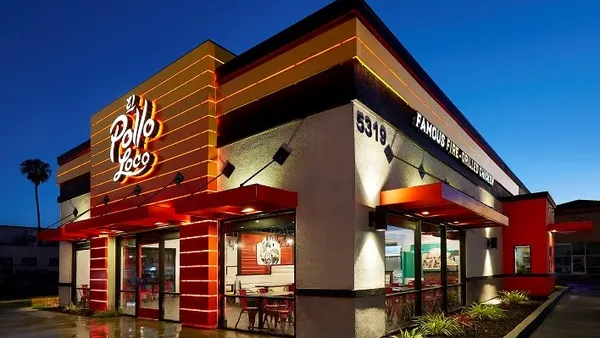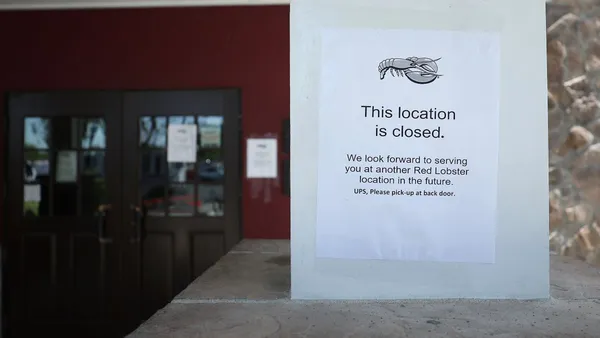Dive Brief:
- Krispy Kreme is searching for a strategic alternative, including a possible all-cash sale, for Insomnia Cookies, the company said Tuesday.
- Krispy Kreme framed the decision as a way to refocus its resources on its core doughnut business.
- The cookie brand has grown significantly since it was acquired by Krispy Kreme in 2018, and the company expects Insomnia to produce revenues of $230 million this year while operating 250-plus bakeries in three countries, according to the press release.
Dive Insight:
Mike Tattersfield, outgoing CEO of Krispy Kreme, said on the company’s most recent earnings call that Insomnia was “starting to become more of a mature brand in our business,” and that its development targets were growing, up from 23 units in one year to between 30 and 40. That growth potential may prove attractive to buyers, though margins at the cookie brand have eroded in recent months as input cost growth exceeded pricing action taken, said Jeremiah Ashukian, Krispy Kreme’s CFO.
Krispy Kreme is emphasizing its omnichannel, hub-and-spoke model, which allows the brand to sell fresh doughnuts from 13,000 points of access, Tattersfield said in the release. The chain’s partnership with McDonald’s in the QSR sphere is part of that strategy, and Krispy Kreme feels there are more opportunities in the fast food space for similar tie-ins.
“Our goal is to expand to more than 75,000 points both by entering 3-5 new countries each year and developing new channels, like quick service restaurants,” Tattersfield said in the press release.
Other restaurant brands, albeit generally those more focused on experiential or casual dining, have shed subsidiary brands and refocused on core menu items and operations this year. Brinker, for example, cut its Maggiano’s Italian Classics virtual brand and folded It’s Just Wings into Chili’s core menu offerings. Red Robin shut down its whole suite of virtual brands, including Virtual Dining Concept’s MrBeast Burger, to refocus on its core competencies. Krispy Kreme also withdrew from the CPG snack business earlier this year.
Krispy Kreme is also facing a leadership transition with Josh Charlesworth set to become CEO in January. In a statement announcing Tattersfield’s departure and Charlesworth’s accession, board chair Olivier Goudet said Krispy Kreme’s future growth is premised on capital-light, hub-and-spoke development. Insomnia’s business model, given its focus on new unit growth, may be at odds with this strategy, making a sale a natural consideration.














